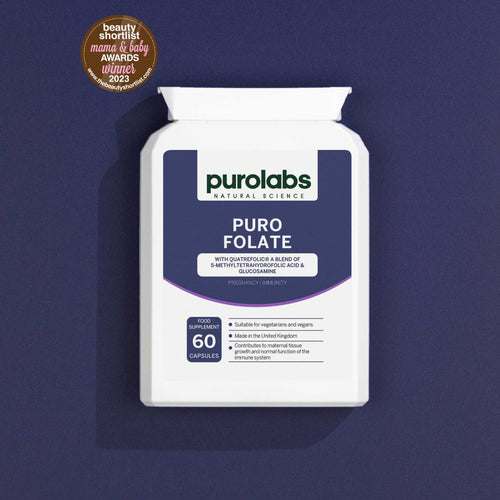Menopause is, quite rightly, gaining the awareness it deserves in recent years.
Whilst menopause is an entirely natural life stage for every woman, it doesn’t come without its fair share of uncomfortable to life impacting symptoms. Commonly reported signs and symptoms of menopause include1:
- Changes to mood, such as anxiety, low-self-esteem and depression
- Issues with memory and concentration
- Hot flushes, which can impact sleep
- An increase in headaches and migraines
- Reduced sex drive and/or vaginal dryness and discomfort
- Changes in body composition and weight gain
This list only includes the most commonly reported, with symptoms varying in severity and impact for each individual.
Sadly, in previous decades it was a topic that lacked public discussion, with women previously (and currently) reporting that it was a topic that led to embarrassment and shame.
Menopause in the Workplace
Menopausal women are the fastest-growing demographic in the workplace, therefore accommodating to the varying needs that this life stage brings is crucial to a happy and productive work environment2.
The British Menopause Society published a survey on 1,000 women and found that 47% who required time off for their symptoms felt that they couldn’t tell their employer that it was menopause related3.
Awareness has therefore spread to the workplace, with companies beginning to introduce policies to support the transition. Whilst policies vary, examples of the changes being implemented to adapt the work environment are:
- Flexible working hours, to support a change in sleep pattern and to accommodate appointments
- Optional planning software, to help with ‘brain fog’
- Asking for a fan or a space in the office which is close to an open window
- Opting for uniform adjustments if experiencing hot flushes
- Allocated sick days for menopausal symptoms
Whilst awareness is growing and companies are beginning to make adjustments, conversations about a natural but life-altering transition should receive more public attention. Menopause cafes, which are recommended by the NHS have been set up to help menopausal women discuss their experiences in a supportive relaxed environment4.
A study found that due to growing public awareness of menopause, younger demographics understand the basic symptoms and changes, however, weren’t as clued in on the psychological impact that menopause had on the individual. The study unearths that menopause education in schools may help to reduce the social impact that the transition has on the individual, whilst preparing younger women for when they naturally reach that life stage5.
Nutrition and the Menopause
Increasing public awareness of menopause is a great step to help support those experiencing the transition. Another field which is speedily gaining traction in this area is the health industry.
Again, whilst menopause is completely natural, it doesn’t mean that the individual has to suffer in silence. Many opt for the pharmaceutical route, such as HRT (hormone replacement therapy), many opt for a holistic route such as diet and lifestyle, and many opt for a mix of the two.
There is no ‘set way’ to navigate menopause as the experience is entirely unique to the individual, dietary adaptations have been shown to help support symptoms.
B vitamins and Menopause
Whilst a well-rounded, wholefood centred diet is great for any life stage, for this article we are going to focus on B vitamins specifically, and their impact on menopausal symptoms.
The wide-ranging benefits of B vitamin intake on menopausal symptoms have been well studied. For anyone navigating this life stage, adequate B vitamin status is crucial, and I’ll explain why…

Vitamin B Complex
Supports Adrenal Health
As women head into perimenopause, oestrogen production naturally drops and shifts from the ovaries to the adrenals. Our adrenals play a vital role in managing the bodies response to stress, by regulating the immune system, metabolism and blood pressure6.
Added responsibility is placed on the adrenals during and after menopause with the addition of oestrogen production and this can place added pressure on adrenal function.
Vitamin B6 helps assist adrenal function by supporting cortisol (our stress hormone) regulation.
May Help to Support Bone Health
Oestrogen plays an important role when it comes to bone health as it helps the body to rebuild bone. Studies show that bone mineral density is negatively impacted during menopause, increasing bone fracture risk7.
Low B2 status in menopausal women has also been related to an almost 2 times risk of osteoporotic fracture, with folate, B12 and B6 deficiency associated with poor bone mineral density8.

Folate
Improve Metabolism
One of B vitamins main roles in human health is in the breakdown and metabolism of our dietary intake. B vitamins helps to metabolise carbohydrates, fats and proteins to be utilised for energy and various bodily functions9.
One of the more commonly reported symptoms of menopause is general fatigue, with studies associating low energy with B vitamin deficiency.
Supports Oestrogen Production
B vitamins play a crucial role in oestrogen production, with B vitamin deficiency contributing to a reduction in oestrogen levels. Whilst a gradual decrease in oestrogen is a natural part of menopause, we can support those hormonal shifts by supplementing with this group of nutrients. B vitamins B2 & B6 in particular have been shown to aid in oestrogen production.
Support Cognitive Function & Brain Fog
Brain fog is a commonly reported symptom during menopause, with B1, B2 & B7 intake associated with improved cognitive functions such as learning, memory, reasoning and problem solving.
Homocysteine, an inflammatory by-product of methylation has been associated with cognitive decline. Numerous studies have shown that B vitamin deficiency correlates with high homocysteine levels, potentially increasing the risk of dementia in menopause and in later years10.
Help to Reduce Cardiovascular Disease Risk
Studies have shown that oestrogen is cardioprotective, therefore a reduction in oestrogen production as a result of menopause may lead to an increased risk of cardiovascular disease.
Cardiovascular disease (CVD) is reportedly higher in males in younger demographics, with the risk ‘levelling out’ between males and females in their fifties and beyond. A high intake of folic acid, B6 & B12 has been shown to lower the risk of CVD in both males and females without a previous history of heart disease11.
Maintains Nervous System Health
B vitamins play a vital role in helping to maintain and support a healthy functioning nervous system12.
Whilst the mechanisms of the association are still unknown, studies have shown that B12 deficiency in particular can mimic the symptoms of anxiety and depression13.

Vitamin B12
Whilst hormonal and psychological shifts may be the predominant drivers of anxiety and depression symptoms during menopause, it is important to rule out any other potential drivers such as B vitamin deficiency.

 Beauty
Beauty
 Bone Health
Bone Health
 Brain Health
Brain Health
 Energy
Energy
 Eye Health
Eye Health
 Gut Health
Gut Health
 Hair
Hair
 Hormonal Health
Hormonal Health
 Heart Health
Heart Health
 Immunity
Immunity
 Joints
Joints
 Menopause
Menopause
 Pregnancy
Pregnancy
 Kids
Kids
 Sleep
Sleep
 Stress & Mood
Stress & Mood




















